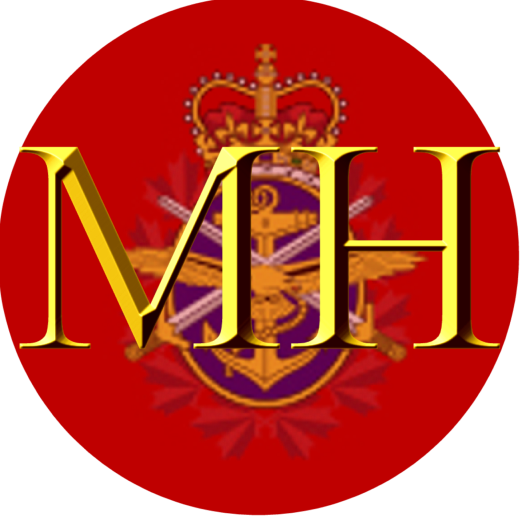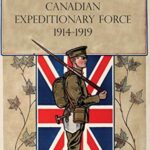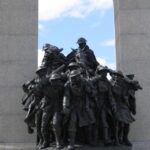1. Fred Anderson, “Crucible of War: The Seven Years’ War and the Fate of Empire in British North America, 1754-1766”
- Anderson’s comprehensive account of the Seven Years’ War focuses on its impact on North America, with particular attention to the conflict between British and French forces in Canada. The book is well-researched and provides a thorough overview of the military, political, and social consequences of the war.
2. W.J. Eccles, “The Canadian Frontier, 1534-1760”
- Eccles’ classic work provides a detailed history of New France, including the crucial role of the Seven Years’ War in shaping the future of Canada. It offers insights into the political and military strategies employed by the French and British during the conflict.
3. Matthew Ward, “Breaking the Backcountry: The Seven Years’ War in Virginia and Pennsylvania, 1754-1765”
- Though focused on the American colonies, Ward’s work provides important context on the broader scope of the Seven Years’ War, including the ways in which it affected the French and British presence in Canada, particularly in relation to Indigenous alliances.
4. Francis Parkman, “Montcalm and Wolfe: The French and Indian War”
- Parkman’s classic narrative covers the key events of the Seven Years’ War in North America, focusing on the rivalry between French General Montcalm and British General Wolfe. While somewhat dated, it remains a highly readable and engaging account of the war, with a particular focus on Canada.
5. Fred Anderson and Andrew Cayton, “The Dominion of War: Empire and Liberty in North America, 1500-2000”
- This work offers a broader history of warfare in North America, but the sections on the Seven Years’ War are particularly insightful. Anderson and Cayton explore how the war reshaped North America and laid the groundwork for future conflicts, including the impact on Canada.
6. C.P. Stacey, “Quebec, 1759: The Siege and the Battle”
- Stacey’s authoritative account of the Battle of Quebec, one of the most decisive events of the Seven Years’ War, focuses on the military strategies, the key figures (Montcalm and Wolfe), and the broader significance of the battle for the future of Canada.
7. René Chartrand, “Montcalm’s Crushing Blow: French and Indian Raids along New York’s Oswego River, 1756”
- Chartrand provides a detailed account of the French military strategies during the Seven Years’ War, focusing on Montcalm’s raids in North America. The book highlights the role of French and Indigenous forces in Canada during the conflict.
8. Peter MacLeod, “Northern Armageddon: The Battle of the Plains of Abraham and the Making of the American Revolution”
- MacLeod’s book is a detailed examination of the Battle of the Plains of Abraham, the key turning point of the Seven Years’ War in Canada. He provides a vivid narrative of the battle and its consequences for both French and British empires in North America.
9. Jonathan R. Dull, “The French Navy and the Seven Years’ War”
- Dull focuses on the crucial role of the French navy in the Seven Years’ War, with particular emphasis on how naval engagements impacted the defense of New France. This book provides important context for understanding how the fall of French Canada was linked to naval power.
10. Richard Middleton, “Pontiac’s War: Its Causes, Course, and Consequences”
- While focusing on the aftermath of the Seven Years’ War, Middleton’s book explores the Indigenous resistance to British rule in the wake of the war, particularly Pontiac’s Rebellion. The book highlights the war’s impact on Indigenous peoples in Canada and their subsequent relations with European powers.
11. Julian Gwyn, “Frigates and Foremasts: The North American Squadron in Nova Scotia Waters, 1745-1815”
- Gwyn’s work covers the role of the British navy during the Seven Years’ War in the Canadian Maritime provinces, particularly Nova Scotia. The book provides a detailed look at naval operations that were crucial to the British victory in Canada.
12. Geoffrey Plank, “An Unsettled Conquest: The British Campaign Against the Peoples of Acadia”
- Plank’s book focuses on the expulsion of the Acadians during the Seven Years’ War, examining how British military campaigns against Acadia reshaped the region. It offers an important perspective on the war’s impact on Acadian culture and identity.
13. William R. Nester, “The French and Indian War and the Conquest of New France”
- Nester provides a comprehensive overview of the French and Indian War (the North American theater of the Seven Years’ War), focusing on the conquest of New France. His work is particularly valuable for understanding the military strategies and political dynamics of the conflict in Canada.
14. Stephen Brumwell, “Redcoats: The British Soldier and War in the Americas, 1755-1763”
- Brumwell’s study of British soldiers during the Seven Years’ War provides insights into the experiences of the men who fought in North America, including in Canada. The book offers a detailed account of military life and the challenges of fighting in a distant land.
15. Piers Mackesy, “The War for America: 1775-1783”
- Although focused on the American Revolution, Mackesy’s book includes an analysis of how the Seven Years’ War set the stage for later conflicts in North America. The war’s consequences for Canada and British imperial strategy are explored in detail.
16. Lawrence H. Gipson, “The British Empire Before the American Revolution, Volume VIII: The Great War for the Empire: The Victorious Years, 1758-1760”
- Gipson’s work is part of a multi-volume study on the British Empire and offers a thorough examination of the Seven Years’ War, including the battles fought in Canada and their global significance.
17. Stuart Reid, “The British at the Gates: The New Orleans Campaign in the War of 1812”
- Reid offers an account of British military campaigns during the War of 1812, but he also provides essential background on British military strategies during the Seven Years’ War and how the lessons from Canada influenced later military conflicts.
18. Colin G. Calloway, “The Scratch of a Pen: 1763 and the Transformation of North America”
- Calloway focuses on the Treaty of Paris of 1763, which ended the Seven Years’ War, and its far-reaching consequences for North America, including the fate of New France and Indigenous peoples in Canada. The book provides valuable insights into the geopolitical shifts that followed the war.
19. Frank McLynn, “1759: The Year Britain Became Master of the World”
- McLynn’s book centers on the pivotal year of 1759, which saw several key British victories, including the Battle of Quebec. The book explores how these military successes shaped the future of the British Empire, particularly in Canada.
20. Michael N. McConnell, “Army and Empire: British Soldiers on the American Frontier, 1758-1775”
- McConnell’s book covers the experiences of British soldiers in North America, including their campaigns in Canada during the Seven Years’ War. It provides a broader context for understanding the military dynamics that led to the British conquest of French Canada.
These references cover a wide range of perspectives on the Seven Years’ War, from military strategy and battles to the political, social, and cultural impacts of the conflict on Canada. They provide a solid foundation for understanding this pivotal moment in Canadian history.



